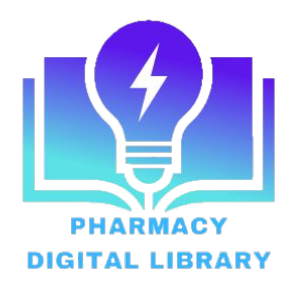Pharmacy: The Science Behind the Cure – A Complete Guide for Students
When we think of healthcare, doctors and hospitals often come to mind first. But behind every prescription, there’s a powerful world of science working silently to ensure the right medication reaches the right patient. This is the world of Pharmacy.
In this blog post, we'll explore what pharmacy really is, why it's a vital part of the healthcare system, how it connects with courses like MBBS, and what exciting career options it opens up for students.
🌿 What Is Pharmacy?
Pharmacy is the branch of health sciences that deals with the preparation, dispensing, and proper utilization of medications. It’s a blend of biology, chemistry, medicine, and ethics, making it both a scientific and a professional field.
Pharmacists are experts in drugs -how they work, how they’re made, how they should be taken, and how they interact with the human body.
Pharmacy includes various subfields such as:
Pharmacology – the study of drug action
Pharmaceutics – drug formulation and delivery
Pharmaceutical Chemistry – drug composition and synthesis

Clinical Pharmacy – working directly with patients to optimize medication therapy
Pharmacognosy – study of drugs derived from natural sources
🎯 Why Study Pharmacy?
If you’re passionate about healthcare and science but don’t necessarily want to become a doctor, pharmacy can be a perfect choice. Here’s why students choose pharmacy:
🔬 Scientific Depth – Dive deep into chemistry, biology, and research.
💊 Practical Impact – Help patients get the right medications safely.
💼 Career Flexibility – Work in hospitals, research, industry, or even start your own business.
🌍 Global Demand – Pharmacists are needed everywhere, especially with growing health awareness and an aging population.
💡 Innovation – Be a part of drug discovery, biotechnology, and clinical trials.
👩⚕️ How Is Pharmacy Related to MBBS and Other Medical Fields?
Pharmacy and MBBS (Bachelor of Medicine and Bachelor of Surgery) both play essential roles in healthcare, but with different focuses.
| MBBS | Pharmacy |
|---|---|
| Diagnoses and treats patients | Prepares and dispenses medications |
| Focus on anatomy, physiology, surgery | Focus on pharmacology, chemistry |
| Prescribes medicines | Ensures safety and accuracy of medicines |
| Works in clinics, hospitals | Works in pharmacies, labs, hospitals |
While MBBS students learn what medications to prescribe, pharmacists understand how these drugs work, how they interact, and how they should be administered. Collaboration between doctors and pharmacists is crucial in modern medicine to ensure the best patient outcomes.
Also, pharmacy knowledge is essential in:
- Drug research and trials (often involving doctors and pharmacists together)
- Hospital settings (clinical pharmacists work with doctors on patient cases)
- Emergency medicine and toxicology
🎓 Courses in Pharmacy
If you're considering studying pharmacy, here are the main academic paths:
✅ Diploma in Pharmacy (D.Pharm)
- Duration: 2 years
- Entry-level qualification
- Allows work as a registered pharmacist
✅ Bachelor of Pharmacy (B.Pharm)
- Duration: 4 years
- In-depth study of drug science
- Leads to roles in clinical, industrial, or community pharmacy
✅ Master of Pharmacy (M.Pharm)
- Duration: 2 years
- Ideal for research and teaching careers
- Specialization options (Pharmacology, Pharmaceutics, etc.
✅ Pharm.D (Doctor of Pharmacy)
- Duration: 6 years
- Clinical focus with hospital internship
- Equips students to work directly with doctors and patients
💼 Career Options After Pharmacy
The pharmacy opens the door to a wide range of careers. Here are some exciting options:
🏥 Clinical Pharmacist
Work in hospitals alongside doctors to monitor patient medications and prevent drug-related issues.
🏪 Community Pharmacist
Manage or run a pharmacy, counsel patients, and dispense medicines.
🔬 Research Scientist
Work in pharmaceutical companies or academic institutions to develop new drugs.
🧪 Quality Control/Analyst
Ensure the safety and quality of medications during production.
💼 Regulatory Affairs Officer
Handle the legal and scientific aspects of drug approval and compliance.
💻 Pharmacovigilance Expert
Monitor and report side effects of drugs in the market.
📚 Academia
Teach pharmacy at universities or conduct research.
🌐 Medical Writing / Marketing
Combine communication skills with science to write for medical publications or work in pharmaceutical marketing.
🚀 Entrepreneurship
Start your own pharmacy, manufacturing unit, or healthcare startup.
🌟 Final Thoughts: Is Pharmacy Right for You?
A pharmacy is not just about selling medicines. It’s about understanding the science of healing, improving healthcare outcomes, and contributing to society. It’s ideal for students who:
- Love science and healthcare
- Want a stable and respected profession
- Are detail-oriented and responsible
- Aspire to make a difference in people’s lives
Whether or not you choose pharmacy instead of MBBS, or alongside it (in multidisciplinary teams), it remains a pillar of the healthcare system - and the demand for skilled pharmacists is only growing.
📝 Quick Recap:
| Aspect | Pharmacy |
|---|---|
| Focus | Drugs, medication, and patient safety |
| Duration (B.Pharm) | 4 years (UG) |
| Eligibility | 10+2 with science (PCB/PCM) |
| Careers | Clinical, Industrial, Research, Community, Academia |
| Related to MBBS? | Yes — complementary and essential in healthcare |

0 Comments
Thank You!
Your response has been recorded.